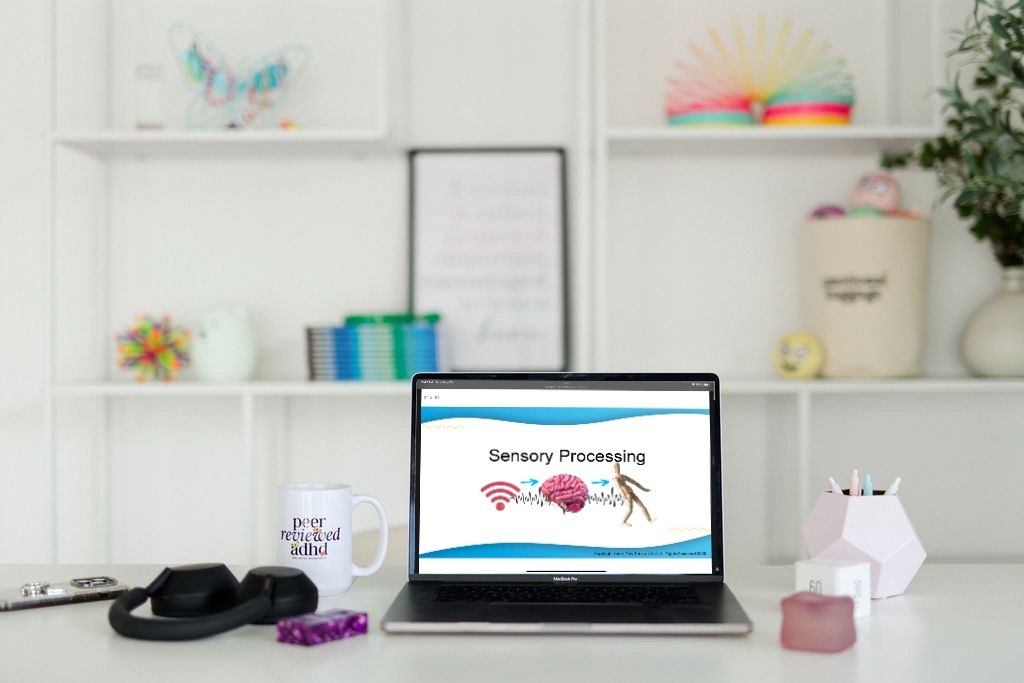Meet Ty: A Cautious Kindergartener with Big Feelings, Auditory Sensitivity, and Major Interoception Dysregulation

Ty is a thoughtful, cautious, sensory-sensitive kindergartener whose parents sought my help for extreme dysregulated behaviors impacting his participation and overall enjoyment in the classroom. Specifically, Ty’s parents note the following concerns that have been brought up by the teacher:
-
Screaming “out of nowhere” in the cafeteria and in the classroom
-
Wandering around or pacing the classroom during work time
-
Throwing objects in the air
-
Pushing, kicking other students
-
Difficulty following instructions, even right after they’re provided
At home, his parents were noticing some dysregulated behaviors on the weekends, but their biggest concern at home is related to interoception–specifically, Ty’s lack of awareness of hunger and potty cues (we will definitely be coming back to this one later). They mention that if he ignores his bathroom or hunger cues too long, they can see a direct link to dysregulated behavior, so they continuously need to remind him to use the bathroom and to eat or take a sip of water. They said Ty describes school as “loud and exciting.”
It was clear early on in the process of reading Ty’s intake notes and meeting Ty’s parents on the calls that they are extremely intuitive parents and completely “get” the sensory picture. They both recognized that Ty’s behaviors are directly tied to his sensory needs and nervous system, but were looking for help in piecing it all together and making it more tangible and practical for the school to implement accommodations.
“It's really unsettling to have him go into the world and feel like we're not there to help Ty and support him at school. We're really trying to help him get in touch with himself and his own self regulation because the teachers can't regulate him.”
My initial thoughts
Ty’s parents did a great job of explaining his behaviors in the classroom and at home in the context of his sensory needs. My immediate hypothesis is that Ty’s sensory sensitivity to the classroom environment is putting him in such a state of dysregulation that it further dampens his interoception awareness. Sensory overload and being hungry and having a full bladder/bowel might be the underlying cause for some of the behaviors at school. His parents were right on board with this.
Here are the questions I had for Ty’s parents for the first call
-
What are the teachers already doing/trying to support Ty?
-
Can we get more information from Ty about different parts of the day that’s hard for him?
🔥Hot tip- if you ever want to dig into something going on at school, ask your child the “magic wand” question: “If you had a magic wand and could change anything (or anyone) at school, what would it be?” Their answer might lead you down some interesting paths to uncover some areas to focus on for support and accommodations.
-
What kinds of strategies or supports at home does Ty respond to best? When is he the most regulated?
-
Does he ever recognize when he’s hungry or has to use the bathroom (i.e. does he ever spontaneously request to go to the bathroom/have a snack?)
Coming up
In the next few weeks, we have a lot to cover. We’ll take a closer look at Ty’s day at school and how the behaviors unfold (over the course of our consultations, they actually started getting worse–more intense and more frequent in the school day). Interoception will be making a huge cameo on the sensory code newsletter stage so you can understand what a significant impact this sense can have on behavior and some strategies to accommodate. We’ll also discuss an approach to try when your child’s refusing to try an accommodation that you know will easily solve the problem.
Don’t miss an email! All emails go out on Mondays so always check your spam or promotions folders, and be sure to add me to your contacts.
See you next week!
PS- did you hear? If you’re new to SPD, I have a brand new crash course for parents: all the need-to-knows about sensory processing in a 90-minute pre-recorded course. Learn more about it here and use code PETIX15 to save 15%

Disclaimer: These case studies are inspired by real-life clients I have worked with, with permission from their parents to share. Some aspects of the case are authentic, and other details are added to include more variability for our discussions. None of the strategies and advice here substitutes medical advice, diagnosis or intervention with an Occupational Therapist.

Continue learning from me:





Responses